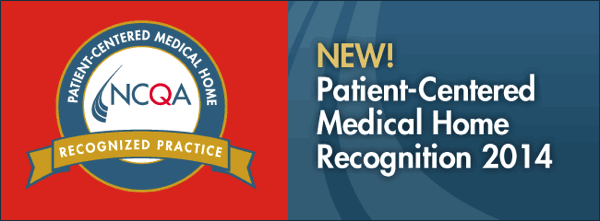
The US based NCQA (National Committee for Quality Assurance) has just released their new 2014 PCMH Standards and Guidelines for PCMH recognition (the previous set of standards was released in 2011) (free, but registration required)
More information at the NCQA site
The patient-centered medical home (PCMH) model of primary care emphasizes care coordination and communication to transform primary care into “what patients want it to be.” Research confirms that medical homes can lead to higher quality and lower costs, and can improve patients’ and providers’ experiences of care. NCQA’s PCMH Recognition program is the most widely-used way to transform primary care practices into medical homes.
What’s new in PCMH 2014?
Changes affecting the advantages and requirements of NCQA PCMH Recognition include:
- Integration of behavioral health – Expectations rise, as they did in previous NCQA standards, that a practice support patients’ behavioral health. Practices are expected to collaborate with behavioral health care providers and to communicate behavioral health care capabilities to patients.
- Care management focus on high-need populations – Practices are expected to address socioeconomic drivers of health and poorly controlled or complex conditions. Practices should also focus on the special needs of patients referred from the “medical neighborhood” of practices that surround and inform the medical home.
- Enhanced emphasis on team-based care – Revised standards emphasize collaboration with patients as part of the care team and establish team-based care as a “must-pass” criterion for NCQA Recognition.
- Alignment of improvement efforts with the triple aim – Practices must show that they are working to improve across all three domains of the triple aim: patient experience, cost and clinical quality.
- Sustained transformation – In keeping with the goal of continuous improvement, practices show that they comply with NCQA standards over long periods.

Recent Comments